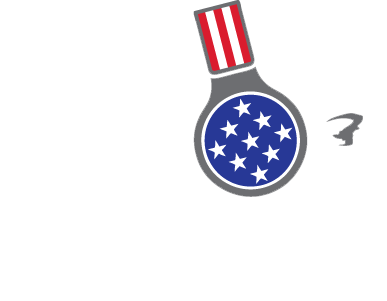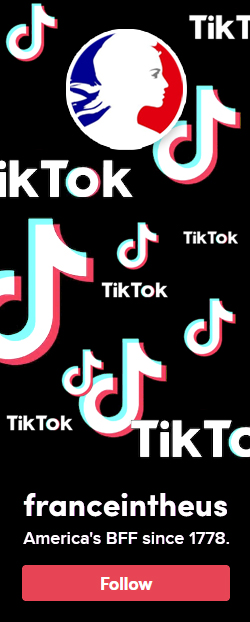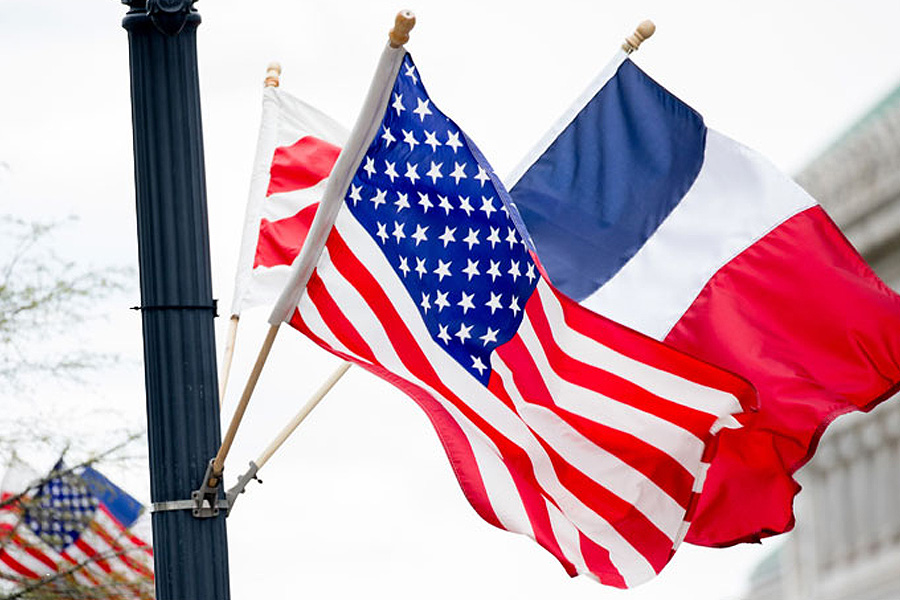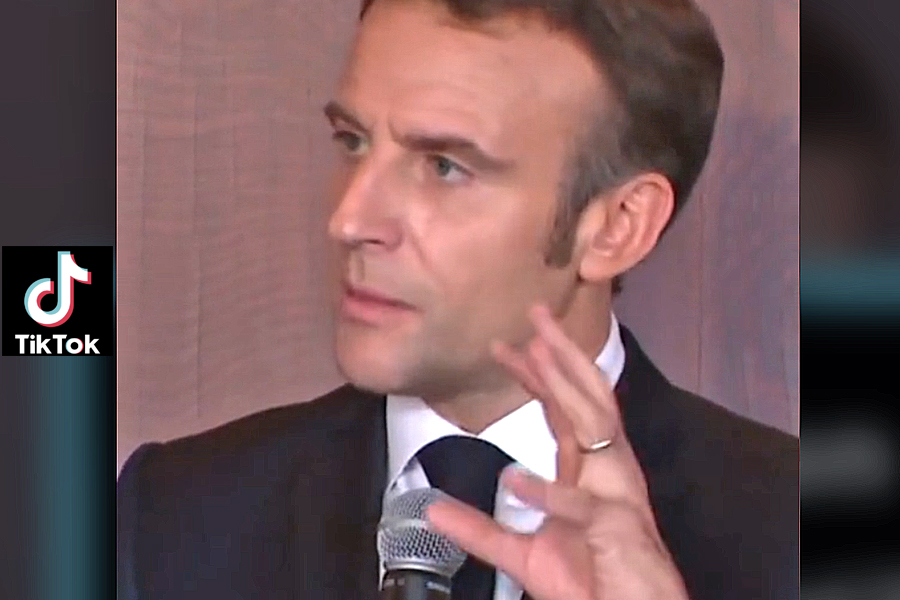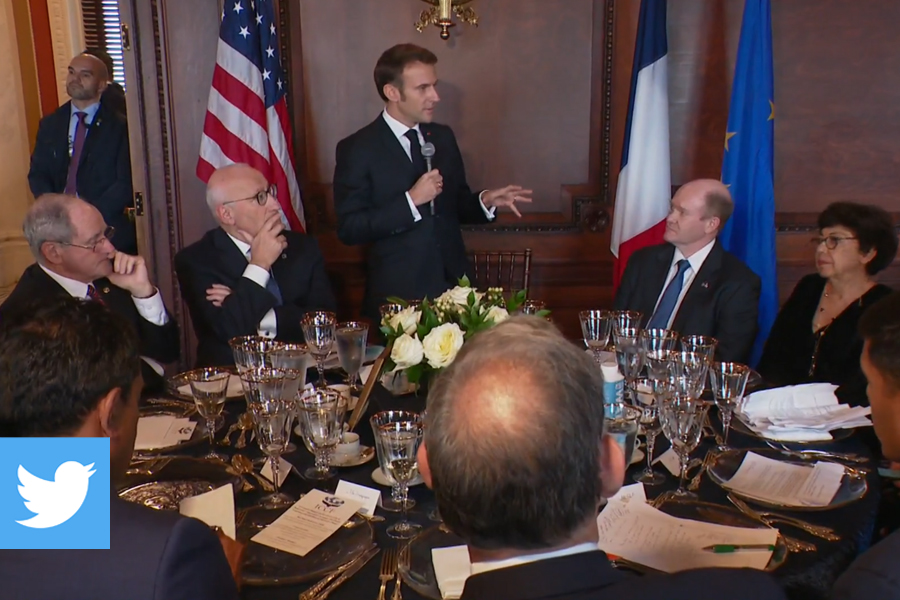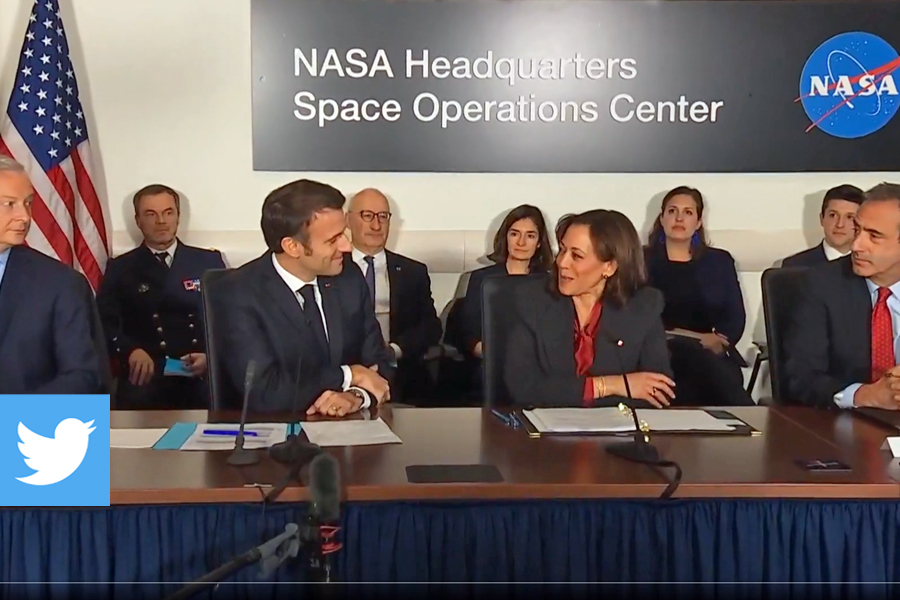President Emmanuel Macron interviewed by Fareed Zakaria on CNN
President Emmanuel Macron interviewed by Fareed Zakaria on CNN
President Emmanuel Macron interviewed by Fareed Zakaria on CNN
SUMMARY
On June 25, 2023, CNN aired an interview of French President Emmanuel Macron in Paris by GPS's host Fareed Zakaria.
Part 1 - Macron's Paris summit sought to foster global consensus
President Macron tells Fareed his Summit for a New Global Financing Pact aimed to address how wealthy countries approach pressing global issues like poverty and climate change.
Part 2 - Building an autonomous Europe
President Macron tells Fareed that Europe must have strategic autonomy apart from the U.S. and China in its approach to global issues like Taiwan.
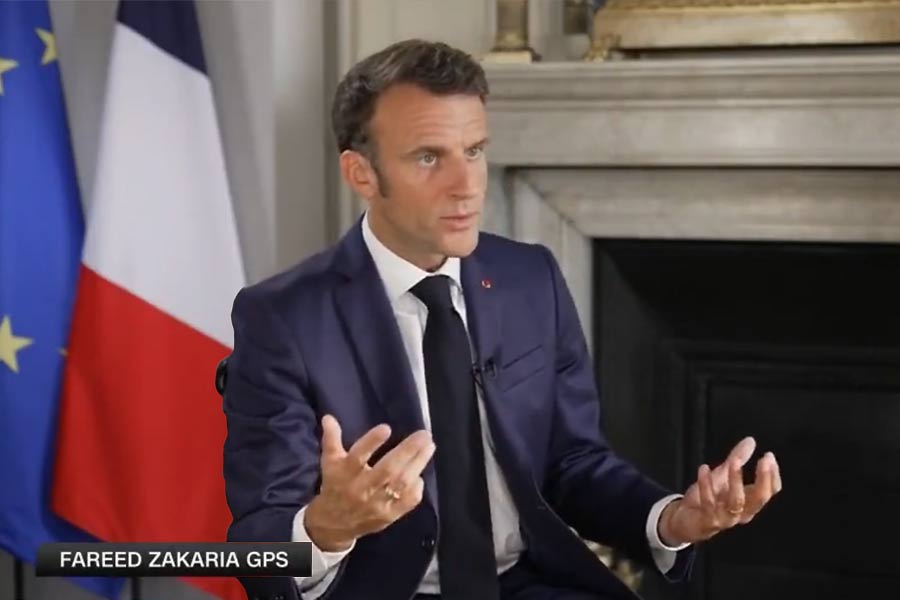
Metadata
Release date: June 25, 2023
Tag(s): Economy & finance, Environment, Foreign policy, President

Metadata
Release date: June 25, 2023
Tag(s): Economy & finance, Environment, Foreign policy, President
Part 1 of my interview in Paris this week with French Pres. @EmmanuelMacron: finding the money to fix the world’s most daunting problems pic.twitter.com/6ajieA3LP2
— Fareed Zakaria (@FareedZakaria) June 25, 2023
Part 2 of my interview with French Pres. @EmmanuelMacron: as the US and China loom large on the global stage, how can Europe assert itself independently? pic.twitter.com/nY2o9uCcWi
— Fareed Zakaria (@FareedZakaria) June 25, 2023
Transcript
FAREED ZAKARIA, HOST: Mr. President, pleasure to have you again.
EMMANUEL MACRON, FRENCH PRESIDENT: Thank you for being here in Paris.
ZAKARIA: Let’s talk about this conference. Fifty-five heads of government, heads of state here, trying to get some kind of agreement about what to do about climate change, about debt relief, poverty reduction. Isn’t the fundamental problem you face that in the wealthy countries of the world, the domestic politics right now does not allow for a massive expansion of aid? And you need a lot of money to solve the kind of problems you’re talking about.
MACRON: Look, I think this summit is a very important moment for at least two reasons, if I may say. The first one, geopolitics. There is a big risk of a global divide because of the war in Ukraine and the whole dynamic, and this divide is the West against the rest. And this narrative is pushed by some big countries, I would say for several reasons. But listening to a lot of leaders during the past year, I was very upset by this narrative of double standard. And a lot of leaders in this world say to us, you have a lot of billions for Ukraine, but when the question is to fix poverty, climate change, climate vulnerability in our country, it takes years or decades to find a few millions. This is quite true. I think we are right to do what we are doing for Ukraine because we are fighting for international law, for our liberty and our principles, and for a country being aggressed. But let’s be clear, we were not sufficiently efficient vis-a-vis the South and a lot of country facing poverty and climate change at the same time. So, we have to address this narrative of double standard. Otherwise, it will be used by some of those to create an alternative multilateral order, new financial institutions, new global order, and to say World Bank, IMF, even United Nations are no more efficient to fix our big issues. Let’s create something else. This is a number one reason of— for me, this forum gathering from the U.S. to China to South Africa, Brazil, Nigeria, Saudi Arabia, the Europeans, and so on. A lot of countries, very poor to very rich, to build together a new consensus. The second objective of this summit is precisely to fix a new consensus, because we created our financial institutions in a world where more than half of this country didn’t exist. They are not fairly represented. And at that time the challenge was not at the magnitude they are facing. Poverty and inequality increased during the past few years and COVID crisis, plus food crisis now had a huge impact on poverty in a lot of these countries. And climate change and biodiversity crisis have huge impact in these countries and impact for all of us because we will never fix this issue if we don’t address the issue vis-a-vis the emerging, the developing and poor countries. And this new consensus is precisely to fix with them this question, this nexus: poverty, biodiversity, climate, and to find new instrument and new mobilization. And we are designing this new consensus for people and planet, around four principles, to be clear. Number one, nobody should be put in a situation to choose between poverty and biodiversity and climate. This is unacceptable morally, but this is bad for these countries and for us because a lot of these countries are absolute treasure for us in terms of biodiversity and absolutely key for our fight against CO2 emission. If they stop deforesting or keep on deforesting, the impact for the whole planet is huge. So, principle number one, they have to fight together against poverty, climate change consequence, and for biodiversities. Second, we have to respect each country on his own path in order to fix this challenge. This is why this is much more a contract by country to be negotiated. That’s a sort of role model to be implemented for everybody. Third, we need much more public money, much more investment from rich countries, much better utilization by IMF and World Bank. And I think here we signed a new road map for IMF and World Bank— better coordination, better leverage, more exposure, which is absolutely key. And this is a transformational moment. Better coordination with public development banks. And yesterday we set up the first political summit finance in common with all public development banks and multilateral institutions from China to the U.S., Europeans, the emerging, the Saudis, and so on. So more public financing, and fourth, we do need more private money to fix these issues in a lot of this country. And World Bank committed to have a leverage of at least one— for $1 of public money, we have at least $1 of private money being invested. This is key, and this is why we are channeling all these liquidities on sovereign funds, asset managers—Private equities part of this world to be channeled to these countries and this project. What do they need? They need first close (ph) mechanism, new guarantees, new innovative financing in order to take the risk in these different countries. This is what we are fixing in this summit.
ZAKARIA: Let’s talk about China. You had a very important trip to China. And after you came back, you said some things that provoked a certain amount of opposition in Europe and particularly the United States.
MACRON: I’m sure.
ZAKARIA: Most specifically, your comment on Taiwan. So, I want to ask you, you said that, you know, Europe needs strategic autonomy. It should not be a vassal of either China or the U.S. And on Taiwan, we should be careful not to accelerate a crisis that is not ours. Mike Gallagher, the head of the China Committee in the House of Representatives, said these comments are disgraceful. Is there anything you want to clarify or change about what you said?
MACRON: Look, I was very clear, and I want to be clear first on Taiwan, we are in favor of the status quo, which means we are dead against any aggression. And we do respect the existing model. And this is what I reiterated with President Xi Jinping. And I understand this is exactly the position of President Biden. Second, I never put France in a sort of equal distance vis-a-vis China and the U.S. We are ally in NATO through our history with the U.S. We do share the same values. We are economic competitors, but we are closely linked by history, by the alliance, and, I mean, human relations and friendship. We want to have the best possible relation with China. We want and we have to work with China to fix climate change, biodiversity crisis, and a lot of conflicts in this world. It’s clear that we don’t share all the same val— I mean, all the same values. And we have very subtle differences on human rights and so on. But we want to find the right way to respect each other. And we are competitor, and our willingness is to en corps (ph) China in the global order. This is exactly what we are doing here in this conference. So, this is just to clarify the sort of perception that China and US could be put at the same level vis-a-vis France, which is not the case. But I want to insist on the point. For me, it’s very important to have a much more autonomous Europe and European Union. Why? Because it’s useful for the global order. I think it’s useful even for the U.S. It’s useful to have a more powerful Europe being in capacity to fix conflicts at its border. I think we are very lucky to have a U.S. administration ready to engage in Ukraine today. Will it be the case in a few years or in a few decades? I’m not sure. The Europeans have to build themselves a capacity to preserve peace on their territory and in the neighborhood. Second, I want us, for our citizens, to be in a situation to be independent in terms of technology, defense, energy, I would say the key structures of a normal life. Why? Because nobody knows what could happen in the rest of the world. And if you are dependent on one country, you can be put in a very tricky situation the day you have a leadership in this country which decide to completely flip flop.
ZAKARIA: Because—
MACRON: And it did happen. Guess what?
ZAKARIA: With Trump.
MACRON: And I experienced that.
ZAKARIA: Yeah, yeah, yeah.
MACRON: So, I don’t want to be put in such a situation again. So, I think it’s fair as a European to be very pushy for more autonomy. It’s useful for the U.S. from a defense point of view because this is burden sharing, and it’s useful for the global order because it’s having for the US an ally being in a situation to discuss with some other people and big powers and which— with which it’s more difficult for the U.S. So, I think it’s not a lack of respect or disgraceful vis-a-vis the United States what I say, and by the way, I discussed with President Biden before and after my trip, and we were very clear, and I can say that you have a president who is extremely clear regarding China and very sensible regarding this big interest, and he is not pushing for an increasing of the conflict reality. And this is—
(CROSSTALK)
—my last point on China, on your question. My main objective was to say through different initiatives and non-coordinated initiative, we should not push— push the Chinese to overreact on the short run.
ZAKARIA: After you made those remarks about Taiwan, almost, it seemed by coincidence, a poll came out in which they asked Europeans whether they would be willing to fight in Taiwan— over Taiwan. And the— overwhelmingly people in Europe said no. Do you think that vindicates the point you were making about Taiwan?
MACRON: No. I mean, I’m always very cautious with polls because sometimes they are good, sometimes they are bad. And I think you have to design your strategy referring to them as well as a long-term interest for everybody. I think we have to be— We have to be very strict on our values and perspective and global order. But I think this world needs less conflict reality because the top priority of our agenda is to fix global problems. I think for me, the top priority of the global agenda is trying to fix the existing crisis, fighting against inequalities and poverty, and fixing climate change and biodiversity. This is— here are the key challenges of the decades to come, but especially this decade. I would add to this one, find—I mean building a good framework and common regulation anon artificial intelligence. Here are the key elements of a global agenda. To deliver on this agenda we need cooperation, and especially we need cooperation between China and the U.S. We did sign the Paris Agreement because President Xi and President Obama found an agreement a few months before. If there is not agreement between China and the U.S. on all these topics, it’s impossible to build a global agenda and to fix these issues. Here are my top priorities. This is why I think for the critical elements where you will increase divisions and conflict reality and tensions between the U.S. and China, we should try to moderate them to find a way to, I mean, discuss quietly and build relevant fora to decrease tensions because our priority should be to fix this— these ones.
ZAKARIA: Mr. President, always a pleasure to have you on.
MACRON: This is mine. Thank you, Fareed. Thank you.
Related posts
